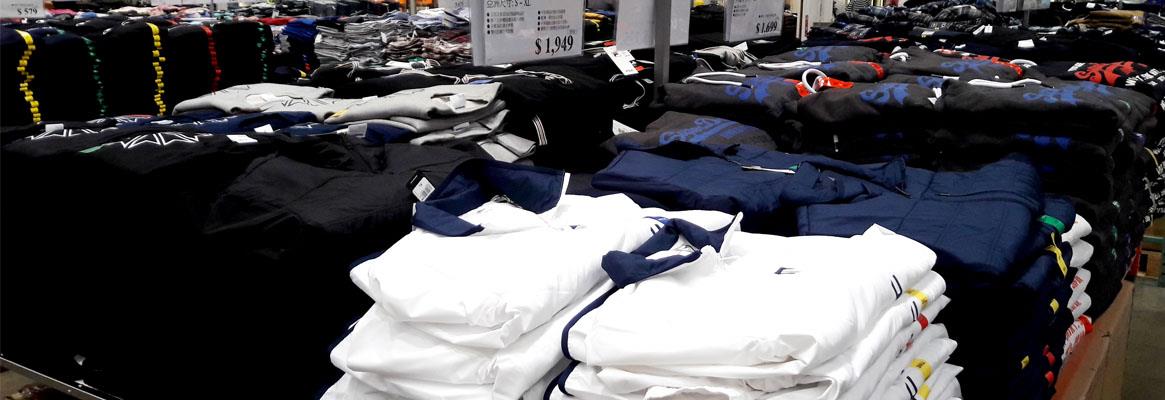Textile exporters of Taiwan have welcomed a US ruling on dumping of polyester textured yarn by Chinese and Indian companies, but those operating in Vietnam see risks instead of new business opportunities as a result of the US-China trade war.
As Taiwanese textile exporters welcomed a November 2019 US ruling that is expected to benefit them, the past year witnessed Taiwanese firms operating in Vietnam foreseeing risks instead of new business opportunities while State-run oil supplier CPC Corp opened an office in New Delhi as part of its plans to set up a plant in India and forge ties with the petrochemicals industry there.
The biggest development of the year for industry came in the form of a far-reaching November 14 ruling by the US department of commerce that said exporters from China and India had been dumping polyester textured yarn (PTY) in the US market at margins ranging from 76.07 per cent to 77.15 per cent and 17.62 per cent to 47.51 per cent respectively. Textile exporters of Taiwan perceived this as a chance to compete in a fair market. The investigations were launched after Nan Ya Plastics Cor. America, a subsidiary of Taiwan's Nan Ya Plastics Corp, and US-based Unifi Manufacturing, Inc. filed a petition against Chinese and Indian exporters.
As things stand, Chinese firms that face heavy US tariffs are likely to sell their products in the domestic market, which would tighten the competition for Taiwanese companies operating in China.
But, a group of Taiwanese firms that have operated in Vietnam long before the US-China trade war foresees risks instead of new business opportunities. According to Shen Hsien-yu, president of the Council of Taiwanese Chambers of Commerce in Vietnam, Taiwanese firms there have supply chains and partners to meet orders from existing customers. As a result, they do not have the capacity to take on new orders from companies shifting away from China-based manufacturers.
Ventures abroad
The State-run oil supplier CPC Corp opened an office in New Delhi in December as part of its plans to set up a plant in India and forge ties with the nation's petrochemicals industry. At the opening ceremony, CPC president Lee Shun-chin said the step symbolised efforts for a presence in India to back Prime Minister Narendra Modi's Make in India initiative.
Lee said CPC's decision also reflected the government's new south-bound policy that promotes exchanges with the Association of Southeast Asian Nations (ASEAN), South Asian countries, Australia and New Zealand to reduce Taiwan's economic reliance on China. CPC is negotiating with the Indian Oil Corporation (IOC) to jointly set up a $800 million plant in India to produce propylene derivatives.
Meanwhile, leading Taiwan-based curtain manufacturer and seller Nien Made Enterprise Co Ltd in August announced plans to expand in Cambodia to avoid the fallout from the US-China trade war. The firm will expand its production line in Southeast Asia and shift orders for finished products from China to Cambodia. Currently, about one-third of the company's readymade products are made in China, but it plans to gradually shift the bulk of its operations to Cambodia over the next few years.
Taiwan's Eclat Textile Co too is planning to invest $170 million-in Indonesia to expand production, diversify risk and boost capacity. A board meeting in September approved the decision to route funds into Indonesia in three stages beginning October. The first phase investment will be over by 2020-end and build a garment factory to produce a million units per month. It aims to roll out products for the Association of Southeast Asian Nations (ASEAN) market and China. The second stage will start in 2021 and build another plant, with a monthly capacity of 1 million units. The third stage will involve building of a weaving mill with a monthly capacity of a million kilograms.
To address a lack of capacity and labour in Vietnam this year, Eclat has found new outsourcing factories and will ramp up its own capacity by 15 per cent next year. The firm is expected to face a capacity shortfall of 1.8-2.2 million pieces per month next year against rising orders from its major brand clients. So, the company plans to raise its monthly garment output to more than 10 million pieces next year, from an estimated 8.5-8.8 million pieces this year. Eclat plans to lift its capacity utilisation rate from 80 per cent to 95 per cent at factories in southern Vietnam, which should generate an additional 800,000 pieces per month. Eclat operates in Taiwan, Vietnam and Cambodia.
Another Taiwanese firm, Chromuch, an innovator in sustainable, colour-rich and developer-friendly synthetic fibres, announced in June its entry into the US market with its brand launch at Outdoor Retailer Summer Market in Denver. Chromuch fibres are made from recycled plastic bottles and use absolutely no water in the dyeing process.
Also, Formosa Taffeta Co (FTC), a textile affiliate of Taiwan's Formosa Plastics Group (FPG), announced plans to invest up to $40.55 million in Switzerland's Schoeller Textil AG in 2020 to deepen its cooperation with the latter and raise its market share of high-end products. FTC's board of directors approved acquiring a 50 per cent stake in Schoeller Textil in March.
Myanmar's Htantabin Technology Park, led by Taipei-based lace maker Wedtex Industrial Corporation's Golden Myanmar Investment Co., announced its intention to create 150,000 jobs and attract over $330 million in investments over the next eight years. The backers of the project estimate that the figure will rise to $840 million in 15 years.
Technological progress
US firm Applied DNA Sciences, a leader in PCR-based DNA manufacturing for product authenticity and traceability solutions, is working with Taiwan's Tex-Ray Industrial Co, a pioneer in performance fabric and smart clothing for modern active lifestyles. The two signed an agreement in January to create a Centre of Excellence in Taiwan, the industry-acknowledged hub for textiles innovation to integrate Applied DNA's CertainT tag, test and track authentication platform into new product development of yarns, finishes and fabrics for designing streamlined supply chain processes to reduce time-to-market for Applied DNA products and services and to grow capabilities in marketing, sales and support for servicing global customers.
Taiwan's Industrial Technology Research Institute (ITRI) and functional fabrics firm Everest Textile jointly developed an automated multi-tasking system for garment production that can cut manual operation by 70 per cent with ITRI's 3D smart vision sensing technology. It can shorten textile sample proofing time to 1-3 days from 7-10 days. It can help Taiwan's textile and garment industry to adopt semi-automatic production. Up to 70 per cent of functional fabrics now come from Taiwan.













Comments